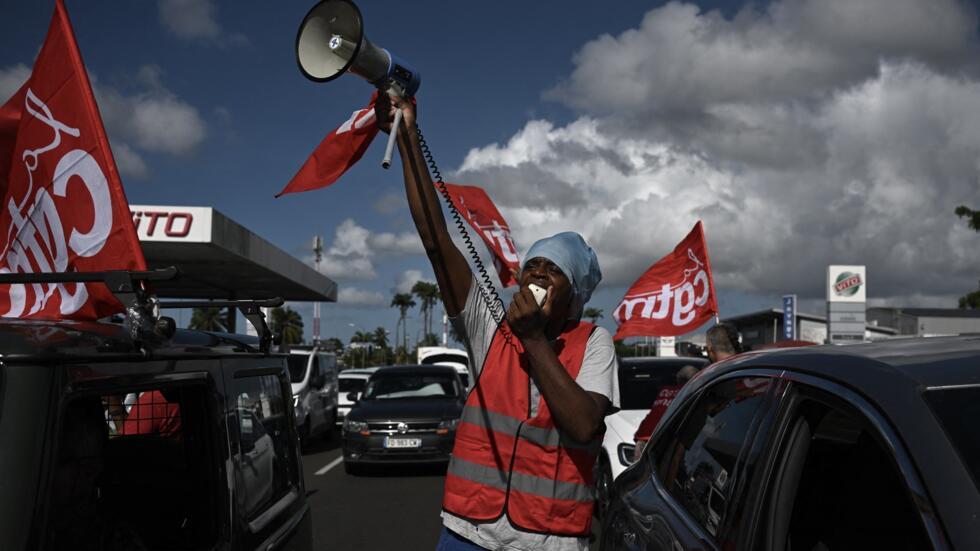After more than six weeks of unrest driven by high living costs, officials in Martinique have taken steps to address the crisis by signing a deal aimed at reducing food prices. Jean-Christophe Bouvier, the French prefect in Martinique, announced that the agreement with various groups, including importers and distributors, will lead to an average price reduction of 20% on 6,000 essential imported products.
The protests, which have resulted in four fatalities and widespread destruction, including looting and arson, have deeply unsettled the French Caribbean island. In response to the turmoil, local authorities have extended an overnight curfew until next week.
Despite the agreement to cut food prices, the leading protest group, the Rally for the Protection of Afro-Caribbean Peoples and Resources (RPPRAC), has dismissed the deal. Martinique currently faces food prices that are approximately 40% higher than those on mainland France, and the RPPRAC is demanding that prices on the island be brought in line with those on the mainland.
RPPRAC leader Rodrigue Petitot expressed dissatisfaction with the scope of the agreement, arguing that it should encompass 40,000 products rather than just 6,000 and that the price cuts should be universally applied, rather than limited to 54 specific food items. “We’ll keep fighting until we get our way,” Petitot stated in an interview with AFP.
In a statement following the seventh round of negotiations, Bouvier outlined five key measures designed to ensure a structural reduction in purchase costs. This includes a commitment from major distributors to significantly lower their profit margins on products sold.
The high cost of living in Martinique is exacerbated by the fact that around 80% of food is imported from mainland France. Residents of the island, which has a population of approximately 360,000, often find themselves paying exorbitant prices for basic items. For instance, a 250g packet of branded ground coffee may cost €7.80 (£6.50), compared to just €3.50 elsewhere. Butter can reach prices as high as €8.50, and households frequently spend up to 17% of their income on meat alone. The price discrepancies extend beyond food, with phone and internet services costing about one-third more in Martinique.
Several factors contribute to these inflated prices, including an outdated 9% import tax known as “octroi de mer,” dating back to the 17th century, and the numerous intermediaries involved in the distribution process.
One protest leader voiced the frustration felt by many residents, stating, “It’s not right for a couple with a child to have to spend €250 on groceries every 10 days for basic food items.” This sentiment encapsulates the growing discontent over the high cost of living and the perceived inadequacy of government responses.
The unrest in Martinique erupted on September 1, leading to widespread protests, roadblocks, and a curfew in the capital, Fort-de-France. As the situation escalated, riot police were deployed, marking the first use of mainland security forces in the territory since 1959.
Earlier this month, the protests intensified, resulting in injuries to several police officers and a tragic incident in which a man was fatally shot during the looting of a shopping center. The violence and unrest have raised serious concerns about social stability in the region, prompting calls for more effective governmental intervention.
As Martinique grapples with these issues, the government faces mounting pressure to find a sustainable solution to the high cost of living. With public discontent growing and the potential for further unrest looming, the authorities must navigate a delicate balance between enforcing order and addressing the underlying economic grievances of the population. The coming weeks will be critical in determining whether the recent agreement can quell the unrest or if it will merely serve as a temporary fix in a broader, more complex crisis.








